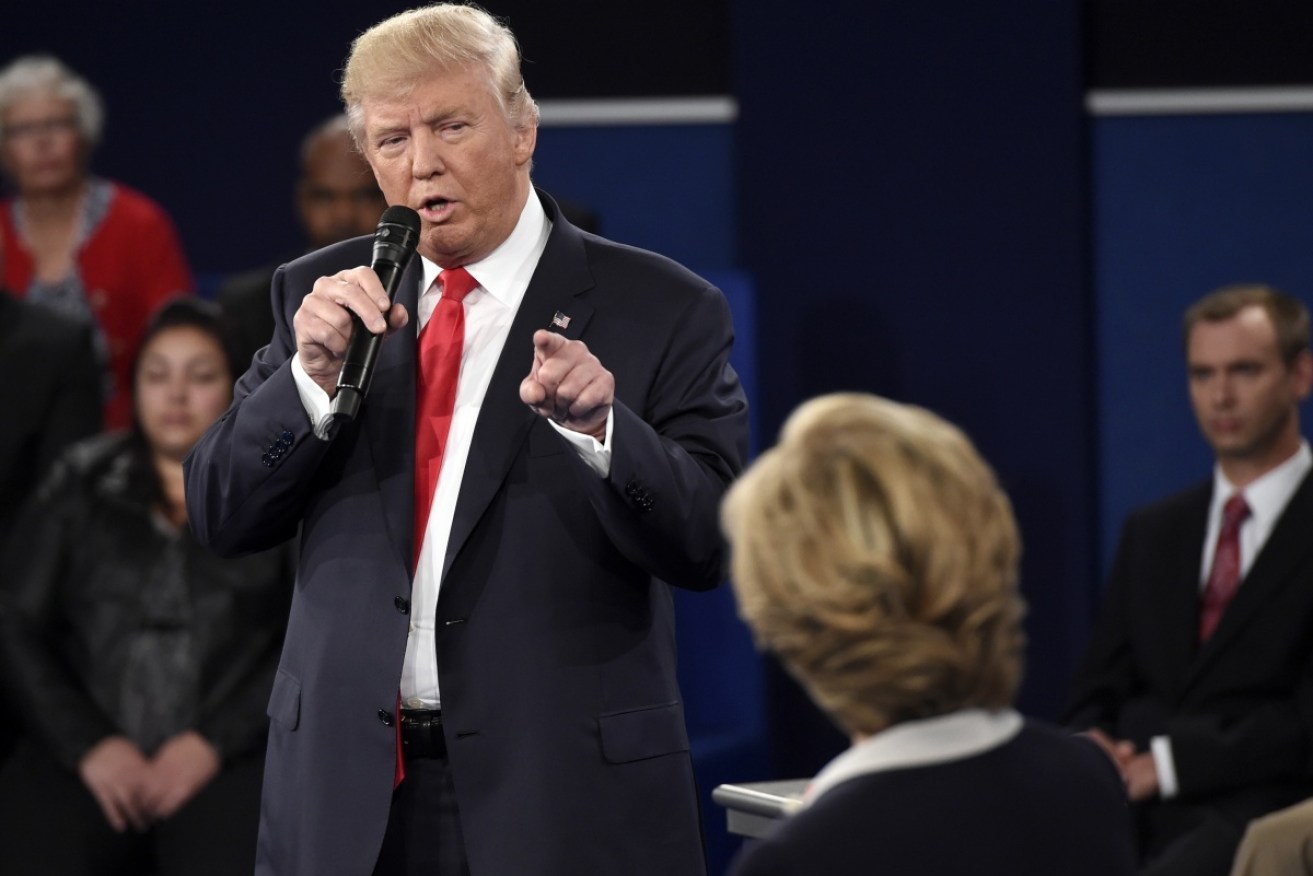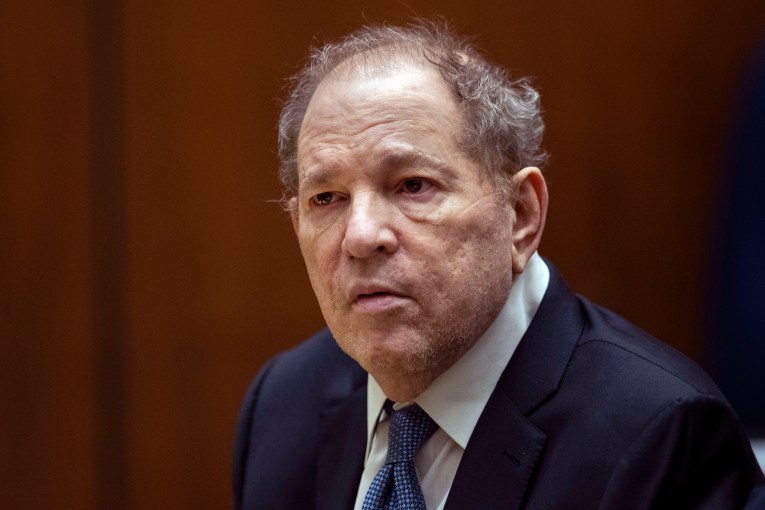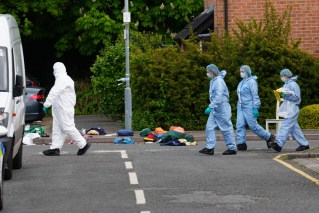Expert reveals what Donald Trump’s sniffing really means … and it’s not hayfever


Hayfever has nothing to do with Donald Trump's sniffing during the second debate. Photo: AP
EXCLUSIVE
Donald Trump’s sniffing has become one of the most talked-about topics of the presidential debates, not to mention the inspiration for a thousand memes on social media.
After the first debate, I gave him the benefit of the doubt. Maybe he had a cold? Maybe there was dust on the microphone?
But after the second debate, and with no suggestion of ill health, I wondered: What if Donald Trump doesn’t need a tissue at all? What if his sniffing is a sign of something deeper? And then it dawned on me.
Donald Trump doesn’t have hayfever, he has anxiety
Performance anxiety, better known as “stage fright”, is an extremely common phenomenon that manifests in many different ways.
— Trump Sniff 👃 (@TrumpSniff) September 27, 2016
Many of us have experienced the increased heart rate, the sweaty palms, or the dry mouth at the thought of having to speak in public. These are the more common manifestations.
But subtler symptoms include involuntary facial nerve tics, such as blinking, twitching, or, you guessed it, sniffing.
We’ve seen Donald Trump on TV before. Why is this happening now?
Yes, we’ve seen him on TV, but he’s always been in a position of power.
As the boss on The Apprentice, he was the person with the power to decide who was hired and fired.
Never before have we seen him on the other side, having to prove his worth to an audience of critical interrogators, who actually hold his fate in their hands.
For perhaps the first time in his life, Donald Trump is vulnerable. And he doesn’t like it.
To add weight to the argument, performance anxiety has been associated with particular personality traits.
It is more likely to manifest in people who display perfectionist tendencies and low self-control. Like the sort of person who would meticulously comb every strand of their hair back and forth each day, or who would engage in off-the-cuff remarks even while being filmed, the type that ‘locker room banter’ is made of.
Watch Donald Trump’s second debate sniffing:
Mr Trump has a history of anxious tendencies
A little-known fact about Mr Trump, which supports this working theory, is that he is a self-confessed germaphobe – that is, he has a pathological fear of germs.
This might explain why he did not shake hands with his opponent at the beginning of the second debate, an exchange many put down to the two candidates simply not liking one another.
For somebody who doesn’t like germs, shaking hands is not fun.
So what does it all mean?
It would be premature for me to make a diagnosis, but I am trained to detect patterns in behaviour.
There is evidence to suggest that underneath the proud and powerful persona Mr Trump shows to the public lies a man just like the rest of us – a little cautious, and very afraid.
#makesniffsgreatagain *sniff* pic.twitter.com/yqNiY2UcYz
— Trump Sniff 👃 (@TrumpSniff) September 27, 2016
I’m not claiming this in any way renders him an ‘unfit’ candidate for presidency, as his opponent might have you believe.
Certainly, Hillary Clinton’s dishonesty does little to ingratiate her. But perhaps this is a subtle insight into Donald Trump’s real human side.
Mr Trump is not physically unwell. In fact, by most reports he is in top physical condition for a man of his age. What if he’s actually just terrified?
Mr Trump, I’m not sure if consultations with a performance psychologist are covered under Obamacare, but if you are interested in my professional services, I’m sure we could negotiate a fee.
Dr Melissa Weinberg is a research consultant and registered psychologist, specialising in wellbeing and performance psychology. She is a TEDx speaker and an Honorary Fellow of Deakin University.








